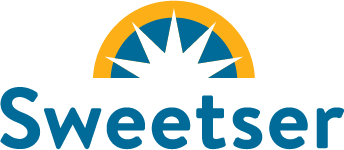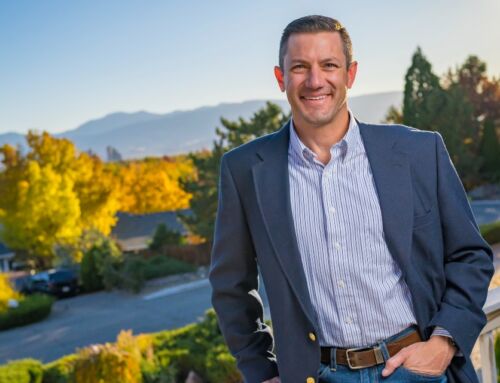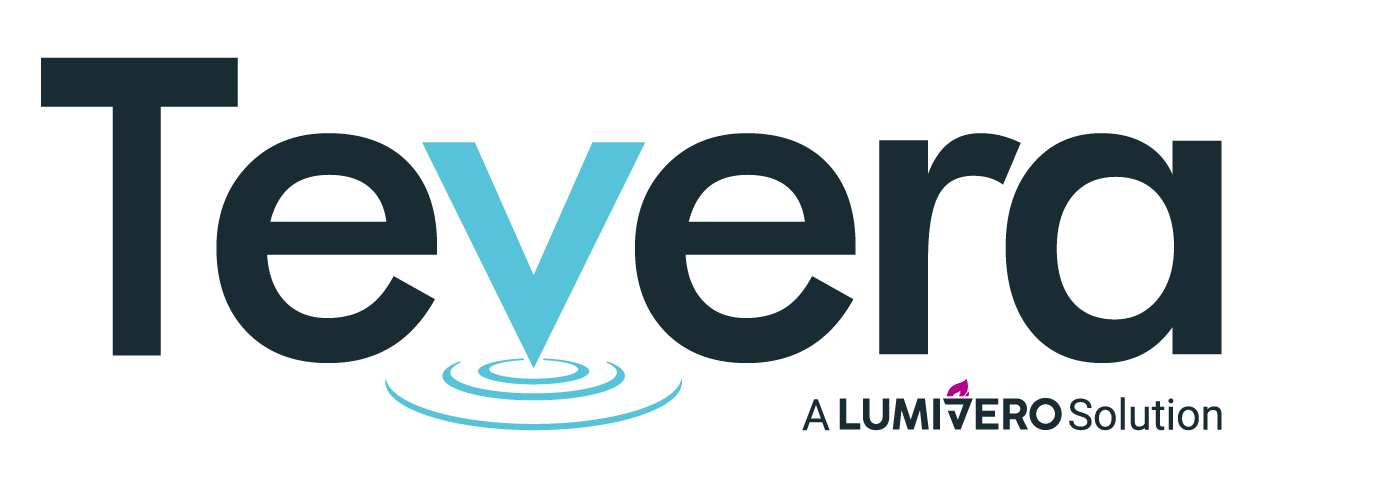OVERVIEW
We speak with Carol, McKenzie, and Parker, recruiters at Sweetser, a top mental health care provider in Maine, about how new behavioral health job seekers can build their dream careers.
Q: Let’s start off with introductions.
Carol: I’m Carol, the Director of Talent Acquisition and Retention. I’ve been with Sweetser for almost two months. I ended up at Sweetser because I believe in their mission. Mental health has always been my passion, so I wanted to get into this field and support people in our community.
McKenzie: I’m McKenzie. I’m a new recruiter, just out of school. I’ve been with Sweetser for five months now. I started as an HR intern, and I wasn’t really sure what direction I wanted to go into, so that was a broad internship that kind of led me to recruiting. And I love Sweetser. I love what they’re about and what they do. So, it was kind of just a no-brainer to stay.
Parker: I’m Parker, and I have been here for almost two years now. I’ve got to see the team’s evolution because when I joined, it was a relatively new part of our HR.
Before this, I did direct care. So, I worked for a smaller organization working with adults with mental illness, and before that part-time at a local shelter, which is where I figured out that that’s the work that I wanted to go into. I did direct care for about five years, and then I realized that I was really passionate about figuring out how things work from the inside.
I always think of it as like a body, and when you’re the direct care, it feels like you’re like the fingers and like you’re the last part to know what’s going on. And I wanted to know how to make things more cohesive. So, that’s why I got into HR. Sweetser’s been an amazing place to land. We are huge, and I love that we really get people where they want to be.
My favorite part is helping to find someone a home.
Q: How do you remain flexible enough to know that your career will change and still take steps forward to building the career that you want?
Parker: I went to school right out of high school. I went through college because I thought that was what I was supposed to do. I ended up with two degrees, and I worked in retail for several years before I finally started dipping my toe in the non-profit world that I wanted to join.
Carol: So, my advice for that is learned experience. And I think going in with an open mind and trying everything you can get your hands on. Join the clubs, do the internships, do the volunteer hours, and basically put yourself out there.
And really try to cast as big of a net as you can, because even if you don’t enjoy it, that’s something that you can cross off your list. You can try it, and you can say, “Oh my gosh, I thought I would really like this. I don’t like it. I don’t like kids ages birth to four. I want to work with middle school kids.” Or maybe you see, “Okay, definitely I don’t want to work with adults, or I don’t want to work with people in crisis. I want to work with people recovering from a crisis.”
So, I think really, just not narrowing your focus. We all have, and I say we all, and I hate using that blanket term because everyone has different lived experiences. Still, so many of us are told from the day we start kindergarten, “You’re going to do this, and then you’re going to do this, and then you’re going to do this,” and that’s how it’s supposed to be.
And so, I had tunnel vision. I did the classes I thought I was supposed to do, I picked the major that I thought I was supposed to do. I joined the sports teams I thought that I was supposed to join, and I did X, Y, and Z. I just think the more open-minded you can be, and determining where you want your career to go, and what you like and don’t like, and learning about yourself through that process will help you eventually identify what career you want to be in. So, you have to think outside the box. It’s your life, it’s your career, and if you’re not willing to do it for yourself, no one’s going to do it for you.
Q: What skills and experiences do you all feel make for successful social workers?
Parker: For the positions I’m hiring for, the biggest thing for me is always just a willingness to learn. You don’t have to be the most positive person in the entire world, but you need a level of acceptance and understanding that things will change daily. You don’t necessarily know what you’re getting into, so you just kind of need that mindset of being comfortable with not knowing. Many people need a very specific structure and have a hard time in direct care positions because it can be so all over the place.
But I think it’s two-fold because I’ve definitely met clinically licensed social workers who would probably never want to work in a direct care unit and would hate that. And vice versa. I’ve met people that work in direct care units for 20, 30 years, are in the same position, and have no interest in becoming a social worker.
There’s also a certain amount of self-awareness I think people must have to know that there is a burnout coming. You need to be able to take care of yourself, which is not a skill that we all have. And you have to develop that.
Q: What advice do you have for students or graduates who may be scared that they’re going to burn out?
Parker: Setting up that foundation from the beginning is important. What I find most helpful is surrounding yourself with people that are there to support you. You have to support yourself, and you really have to love your coworkers. And I guess love is sort of a relative term, but respect and trust for others.
Carol: I think it’s important to remind people that when you’re in the field of working with others, and giving back, and taking on emotional and mental exhaustion, that it’s impossible to help fill someone else’s bucket when you don’t have anything in your bucket. So, make sure that you prioritize taking a step back if you need it. And set very clear-cut boundaries. Identify what’s important to you, what your boundaries look like, and how you create space to allow yourself to set and hold true to those boundaries.
McKenzie: It’s important to find that work-life balance, recharge yourself, and take some time away from work. That way, you can fill your bucket up, and you can pour it into other people again.
Q: What do you look for in the recruiting process? Do you have any tips for building good resumes, like what should go on a resume, how long it should be? And how do you decide what questions to ask in an interview?
Carol: I like resumes that are a page. Obviously, when you get further along in your career, they’re going to be lengthier, but I don’t want to know about your dog-walking job when you were seven.
For me, when you’re trying to catch someone’s eye on a resume, it should be clear, cut, dry, concise. This is my objective. These are my transferable skills. This is my experience. This is my education, etc.
I can’t stress that enough. I’ve been looking at resumes for 10 years, and I have seen some really, really atrocious 10-pagers that have their entire life history in there. And then I’ve seen some really, really, small ones like one or two sentences long. So, make sure that it’s well-formatted too.
You have approximately 10 seconds to stand out to a recruiter before they are like, “Thank you, next,” and either go onto the next one or stop reading and lose interest.
Make sure that you have something in there that they’re able to follow. Students especially need to put their education on there and where they are in the process. I want to know when I’m going into the call. Am I talking to someone that’s already scheduled their exam and they are taking it in October? Am I talking to someone that has newly passed their exam and needs supervision, and it’ll come through online as soon as we have their supervision? Or am I talking to someone that’s already conditionally licensed, that wants to move to Maine, and they just need to do a transfer and figure out how to transfer the license? And so, that’s what I would be looking for in any of these resumes.
Parker: I was going to say it’s just so different with what we’re looking for, really depending on the position. What Carol is referring to is a lot of clinical. And a lot of what I am sifting through is people for whom this is their first job ever or their return back to work after gaps for some reason. Oftentimes it might be people that have actually lived the experience and want to work in the field. And so, they don’t have a degree, don’t have a lot of job history, don’t have a lot of references that they can really give that are professional.
So, the difference is I want to know everything. When I talk to people about a lot of these jobs, I’m talking to them about their lives, and what they’re doing, why they’re doing it, and what their interest is. What they’re passionate about, what our mission is because we don’t have those same requirements like a degree, clinically conditional, or independent. It’s just like, you have a GED, you have a diploma, we can chat, basically. And so, what I’m looking for is a lot different, and then I’m obviously scanning for any red flags that would pop up because we work with a lot of marginalized populations.
Q: Do you have any tips for people who don’t have that previous experience? Should they mention why they had a gap?
Parker: Personally, I always err on the side of sharing too much, which is maybe not the best. But that’s just me as a person. So, I love hearing from people about their lives, whether it’s positive or negative, and what that gap was for. Or why they don’t have a job history, because I think sharing, while maintaining appropriate boundaries, can connect you with people. You can sometimes dig things out from people that they might not be open about initially. You can see where people are passionate about things and why they want to go into the work.
So, the gaps don’t necessarily bother me, but things I do look for that stick out to me though, and make me hesitate, are extensive job histories with short stays at each job.
Q: What sorts of conversations should a job applicant watch for in that initial recruiting call?
Parker: So, with the initial call, we usually do what we call a pre-screen. One, to not waste anyone’s time. We don’t want to waste their time, and we don’t want them to be on a call for an hour and a half with us only to be like, “Oh, sorry. It’s actually not going to work.” So, we hash out those quick questions about the pay, requirements, and what the position entails. This is what we offer for benefits. This is the schedule, and so on. Can you meet all of these things? And does this sound good to you? Then you can go to the next stage of the interview.
Q: What are some intangibles about the company culture? I know that that is always hard to pinpoint, but so important for staying in a job for a long time.
Carol: I can give some recent examples of things that I’ve noticed since I’ve been here that I’ve come to really appreciate.
I think having the support of your coworkers and the community as a whole is something that is important. And that was really important to me in my career. Feeling like you have multiple people to talk to, to ask questions of, and to get a full understanding of your job in the company is something that a lot of places wouldn’t afford you the comfortability to ask that.
It’s pretty nice that we have people that believe so strongly in the mission. It’s not just another company. And we’re a non-profit, we’re not here to roll in the big bucks, we’re not here to make giant moves on Wall Street, we’re here for a purpose. And that is something you’re not going to get at a lot of companies across the board.
Q: So, when you’re an applicant, how do you try to maybe suss out that intangible team-centric feeling that you guys clearly have?
Carol: Ask all the questions.
You have to ask because this is your job, this is your career. I was very, I wouldn’t say self-conscious, but I was nervous when I was talking with Parker and McKenzie because I didn’t want them to feel like I was interviewing them. But at the same time, I have all the questions. How does your team work? What are your responsibilities? How do you guys ebb and flow together? And so, you have to be comfortable to ask the questions because, at the end of the day, it’s your career. And if you’re not going to ask the questions, no one’s going to hand-hold you through it.
So, ask the questions and ask the tough questions. And you might catch people off-guard, and trip them up, which sometimes happens. But with a good company, you’ll be able to see through that. I asked the same questions of Parker and McKenzie as I did to another company, and they couldn’t answer me on the same page. Their answers were as if they were reading it directly from a script, and you can tell. You kind of just get a feeling in your gut where you’re like, “Something is off.”
Q: Do you have any advice for people who might be shy when reaching out to find a job or to network?
Carol: It’s really important to find a mentor, someone that can help you. Finding someone that is invested in your success. And try not to take things personally. And that is such lame advice for me because I take everything personally. But it’s a job, and people get really busy, and sometimes people forget to get back to you. And it’s not because they didn’t like you, it’s not because they didn’t think you’d be a good candidate, it’s because they got 1,700 emails today, and yours fell to the bottom of the chain.
And I’m not saying that’s good, and I’m not saying that it’s appropriate not to get back to people. But stuff happens. So, get a mentor, don’t take it personally, put yourself outside of your comfort zone. Your career, you just got to do it.
Finding a new job can be overwhelming, especially if it’s your first in the field. Take the time you need to find the right fit for you. Network, ask all the questions, and have fun exploring!
Thank you Carol, McKenzie, and Parker for helping job seekers find their dream jobs!
SOLUTIONS
RELATED POSTS
PRODUCT OVERVIEW
See how Tevera can elevate your program.
OVERVIEW
We speak with Carol, McKenzie, and Parker, recruiters at Sweetser, a top mental health care provider in Maine, about how new behavioral health job seekers can build their dream careers.
Q: Let’s start off with introductions.
Carol: I’m Carol, the Director of Talent Acquisition and Retention. I’ve been with Sweetser for almost two months. I ended up at Sweetser because I believe in their mission. Mental health has always been my passion, so I wanted to get into this field and support people in our community.
McKenzie: I’m McKenzie. I’m a new recruiter, just out of school. I’ve been with Sweetser for five months now. I started as an HR intern, and I wasn’t really sure what direction I wanted to go into, so that was a broad internship that kind of led me to recruiting. And I love Sweetser. I love what they’re about and what they do. So, it was kind of just a no-brainer to stay.
Parker: I’m Parker, and I have been here for almost two years now. I’ve got to see the team’s evolution because when I joined, it was a relatively new part of our HR.
Before this, I did direct care. So, I worked for a smaller organization working with adults with mental illness, and before that part-time at a local shelter, which is where I figured out that that’s the work that I wanted to go into. I did direct care for about five years, and then I realized that I was really passionate about figuring out how things work from the inside.
I always think of it as like a body, and when you’re the direct care, it feels like you’re like the fingers and like you’re the last part to know what’s going on. And I wanted to know how to make things more cohesive. So, that’s why I got into HR. Sweetser’s been an amazing place to land. We are huge, and I love that we really get people where they want to be.
My favorite part is helping to find someone a home.
Q: How do you remain flexible enough to know that your career will change and still take steps forward to building the career that you want?
Parker: I went to school right out of high school. I went through college because I thought that was what I was supposed to do. I ended up with two degrees, and I worked in retail for several years before I finally started dipping my toe in the non-profit world that I wanted to join.
Carol: So, my advice for that is learned experience. And I think going in with an open mind and trying everything you can get your hands on. Join the clubs, do the internships, do the volunteer hours, and basically put yourself out there.
And really try to cast as big of a net as you can, because even if you don’t enjoy it, that’s something that you can cross off your list. You can try it, and you can say, “Oh my gosh, I thought I would really like this. I don’t like it. I don’t like kids ages birth to four. I want to work with middle school kids.” Or maybe you see, “Okay, definitely I don’t want to work with adults, or I don’t want to work with people in crisis. I want to work with people recovering from a crisis.”
So, I think really, just not narrowing your focus. We all have, and I say we all, and I hate using that blanket term because everyone has different lived experiences. Still, so many of us are told from the day we start kindergarten, “You’re going to do this, and then you’re going to do this, and then you’re going to do this,” and that’s how it’s supposed to be.
And so, I had tunnel vision. I did the classes I thought I was supposed to do, I picked the major that I thought I was supposed to do. I joined the sports teams I thought that I was supposed to join, and I did X, Y, and Z. I just think the more open-minded you can be, and determining where you want your career to go, and what you like and don’t like, and learning about yourself through that process will help you eventually identify what career you want to be in. So, you have to think outside the box. It’s your life, it’s your career, and if you’re not willing to do it for yourself, no one’s going to do it for you.
Q: What skills and experiences do you all feel make for successful social workers?
Parker: For the positions I’m hiring for, the biggest thing for me is always just a willingness to learn. You don’t have to be the most positive person in the entire world, but you need a level of acceptance and understanding that things will change daily. You don’t necessarily know what you’re getting into, so you just kind of need that mindset of being comfortable with not knowing. Many people need a very specific structure and have a hard time in direct care positions because it can be so all over the place.
But I think it’s two-fold because I’ve definitely met clinically licensed social workers who would probably never want to work in a direct care unit and would hate that. And vice versa. I’ve met people that work in direct care units for 20, 30 years, are in the same position, and have no interest in becoming a social worker.
There’s also a certain amount of self-awareness I think people must have to know that there is a burnout coming. You need to be able to take care of yourself, which is not a skill that we all have. And you have to develop that.
Q: What advice do you have for students or graduates who may be scared that they’re going to burn out?
Parker: Setting up that foundation from the beginning is important. What I find most helpful is surrounding yourself with people that are there to support you. You have to support yourself, and you really have to love your coworkers. And I guess love is sort of a relative term, but respect and trust for others.
Carol: I think it’s important to remind people that when you’re in the field of working with others, and giving back, and taking on emotional and mental exhaustion, that it’s impossible to help fill someone else’s bucket when you don’t have anything in your bucket. So, make sure that you prioritize taking a step back if you need it. And set very clear-cut boundaries. Identify what’s important to you, what your boundaries look like, and how you create space to allow yourself to set and hold true to those boundaries.
McKenzie: It’s important to find that work-life balance, recharge yourself, and take some time away from work. That way, you can fill your bucket up, and you can pour it into other people again.
Q: What do you look for in the recruiting process? Do you have any tips for building good resumes, like what should go on a resume, how long it should be? And how do you decide what questions to ask in an interview?
Carol: I like resumes that are a page. Obviously, when you get further along in your career, they’re going to be lengthier, but I don’t want to know about your dog-walking job when you were seven.
For me, when you’re trying to catch someone’s eye on a resume, it should be clear, cut, dry, concise. This is my objective. These are my transferable skills. This is my experience. This is my education, etc.
I can’t stress that enough. I’ve been looking at resumes for 10 years, and I have seen some really, really atrocious 10-pagers that have their entire life history in there. And then I’ve seen some really, really, small ones like one or two sentences long. So, make sure that it’s well-formatted too.
You have approximately 10 seconds to stand out to a recruiter before they are like, “Thank you, next,” and either go onto the next one or stop reading and lose interest.
Make sure that you have something in there that they’re able to follow. Students especially need to put their education on there and where they are in the process. I want to know when I’m going into the call. Am I talking to someone that’s already scheduled their exam and they are taking it in October? Am I talking to someone that has newly passed their exam and needs supervision, and it’ll come through online as soon as we have their supervision? Or am I talking to someone that’s already conditionally licensed, that wants to move to Maine, and they just need to do a transfer and figure out how to transfer the license? And so, that’s what I would be looking for in any of these resumes.
Parker: I was going to say it’s just so different with what we’re looking for, really depending on the position. What Carol is referring to is a lot of clinical. And a lot of what I am sifting through is people for whom this is their first job ever or their return back to work after gaps for some reason. Oftentimes it might be people that have actually lived the experience and want to work in the field. And so, they don’t have a degree, don’t have a lot of job history, don’t have a lot of references that they can really give that are professional.
So, the difference is I want to know everything. When I talk to people about a lot of these jobs, I’m talking to them about their lives, and what they’re doing, why they’re doing it, and what their interest is. What they’re passionate about, what our mission is because we don’t have those same requirements like a degree, clinically conditional, or independent. It’s just like, you have a GED, you have a diploma, we can chat, basically. And so, what I’m looking for is a lot different, and then I’m obviously scanning for any red flags that would pop up because we work with a lot of marginalized populations.
Q: Do you have any tips for people who don’t have that previous experience? Should they mention why they had a gap?
Parker: Personally, I always err on the side of sharing too much, which is maybe not the best. But that’s just me as a person. So, I love hearing from people about their lives, whether it’s positive or negative, and what that gap was for. Or why they don’t have a job history, because I think sharing, while maintaining appropriate boundaries, can connect you with people. You can sometimes dig things out from people that they might not be open about initially. You can see where people are passionate about things and why they want to go into the work.
So, the gaps don’t necessarily bother me, but things I do look for that stick out to me though, and make me hesitate, are extensive job histories with short stays at each job.
Q: What sorts of conversations should a job applicant watch for in that initial recruiting call?
Parker: So, with the initial call, we usually do what we call a pre-screen. One, to not waste anyone’s time. We don’t want to waste their time, and we don’t want them to be on a call for an hour and a half with us only to be like, “Oh, sorry. It’s actually not going to work.” So, we hash out those quick questions about the pay, requirements, and what the position entails. This is what we offer for benefits. This is the schedule, and so on. Can you meet all of these things? And does this sound good to you? Then you can go to the next stage of the interview.
Q: What are some intangibles about the company culture? I know that that is always hard to pinpoint, but so important for staying in a job for a long time.
Carol: I can give some recent examples of things that I’ve noticed since I’ve been here that I’ve come to really appreciate.
I think having the support of your coworkers and the community as a whole is something that is important. And that was really important to me in my career. Feeling like you have multiple people to talk to, to ask questions of, and to get a full understanding of your job in the company is something that a lot of places wouldn’t afford you the comfortability to ask that.
It’s pretty nice that we have people that believe so strongly in the mission. It’s not just another company. And we’re a non-profit, we’re not here to roll in the big bucks, we’re not here to make giant moves on Wall Street, we’re here for a purpose. And that is something you’re not going to get at a lot of companies across the board.
Q: So, when you’re an applicant, how do you try to maybe suss out that intangible team-centric feeling that you guys clearly have?
Carol: Ask all the questions.
You have to ask because this is your job, this is your career. I was very, I wouldn’t say self-conscious, but I was nervous when I was talking with Parker and McKenzie because I didn’t want them to feel like I was interviewing them. But at the same time, I have all the questions. How does your team work? What are your responsibilities? How do you guys ebb and flow together? And so, you have to be comfortable to ask the questions because, at the end of the day, it’s your career. And if you’re not going to ask the questions, no one’s going to hand-hold you through it.
So, ask the questions and ask the tough questions. And you might catch people off-guard, and trip them up, which sometimes happens. But with a good company, you’ll be able to see through that. I asked the same questions of Parker and McKenzie as I did to another company, and they couldn’t answer me on the same page. Their answers were as if they were reading it directly from a script, and you can tell. You kind of just get a feeling in your gut where you’re like, “Something is off.”
Q: Do you have any advice for people who might be shy when reaching out to find a job or to network?
Carol: It’s really important to find a mentor, someone that can help you. Finding someone that is invested in your success. And try not to take things personally. And that is such lame advice for me because I take everything personally. But it’s a job, and people get really busy, and sometimes people forget to get back to you. And it’s not because they didn’t like you, it’s not because they didn’t think you’d be a good candidate, it’s because they got 1,700 emails today, and yours fell to the bottom of the chain.
And I’m not saying that’s good, and I’m not saying that it’s appropriate not to get back to people. But stuff happens. So, get a mentor, don’t take it personally, put yourself outside of your comfort zone. Your career, you just got to do it.
Finding a new job can be overwhelming, especially if it’s your first in the field. Take the time you need to find the right fit for you. Network, ask all the questions, and have fun exploring!
Thank you Carol, McKenzie, and Parker for helping job seekers find their dream jobs!
OVERVIEW
We speak with Carol, McKenzie, and Parker, recruiters at Sweetser, a top mental health care provider in Maine, about how new behavioral health job seekers can build their dream careers.
Q: Let’s start off with introductions.
Carol: I’m Carol, the Director of Talent Acquisition and Retention. I’ve been with Sweetser for almost two months. I ended up at Sweetser because I believe in their mission. Mental health has always been my passion, so I wanted to get into this field and support people in our community.
McKenzie: I’m McKenzie. I’m a new recruiter, just out of school. I’ve been with Sweetser for five months now. I started as an HR intern, and I wasn’t really sure what direction I wanted to go into, so that was a broad internship that kind of led me to recruiting. And I love Sweetser. I love what they’re about and what they do. So, it was kind of just a no-brainer to stay.
Parker: I’m Parker, and I have been here for almost two years now. I’ve got to see the team’s evolution because when I joined, it was a relatively new part of our HR.
Before this, I did direct care. So, I worked for a smaller organization working with adults with mental illness, and before that part-time at a local shelter, which is where I figured out that that’s the work that I wanted to go into. I did direct care for about five years, and then I realized that I was really passionate about figuring out how things work from the inside.
I always think of it as like a body, and when you’re the direct care, it feels like you’re like the fingers and like you’re the last part to know what’s going on. And I wanted to know how to make things more cohesive. So, that’s why I got into HR. Sweetser’s been an amazing place to land. We are huge, and I love that we really get people where they want to be.
My favorite part is helping to find someone a home.
Q: How do you remain flexible enough to know that your career will change and still take steps forward to building the career that you want?
Parker: I went to school right out of high school. I went through college because I thought that was what I was supposed to do. I ended up with two degrees, and I worked in retail for several years before I finally started dipping my toe in the non-profit world that I wanted to join.
Carol: So, my advice for that is learned experience. And I think going in with an open mind and trying everything you can get your hands on. Join the clubs, do the internships, do the volunteer hours, and basically put yourself out there.
And really try to cast as big of a net as you can, because even if you don’t enjoy it, that’s something that you can cross off your list. You can try it, and you can say, “Oh my gosh, I thought I would really like this. I don’t like it. I don’t like kids ages birth to four. I want to work with middle school kids.” Or maybe you see, “Okay, definitely I don’t want to work with adults, or I don’t want to work with people in crisis. I want to work with people recovering from a crisis.”
So, I think really, just not narrowing your focus. We all have, and I say we all, and I hate using that blanket term because everyone has different lived experiences. Still, so many of us are told from the day we start kindergarten, “You’re going to do this, and then you’re going to do this, and then you’re going to do this,” and that’s how it’s supposed to be.
And so, I had tunnel vision. I did the classes I thought I was supposed to do, I picked the major that I thought I was supposed to do. I joined the sports teams I thought that I was supposed to join, and I did X, Y, and Z. I just think the more open-minded you can be, and determining where you want your career to go, and what you like and don’t like, and learning about yourself through that process will help you eventually identify what career you want to be in. So, you have to think outside the box. It’s your life, it’s your career, and if you’re not willing to do it for yourself, no one’s going to do it for you.
Q: What skills and experiences do you all feel make for successful social workers?
Parker: For the positions I’m hiring for, the biggest thing for me is always just a willingness to learn. You don’t have to be the most positive person in the entire world, but you need a level of acceptance and understanding that things will change daily. You don’t necessarily know what you’re getting into, so you just kind of need that mindset of being comfortable with not knowing. Many people need a very specific structure and have a hard time in direct care positions because it can be so all over the place.
But I think it’s two-fold because I’ve definitely met clinically licensed social workers who would probably never want to work in a direct care unit and would hate that. And vice versa. I’ve met people that work in direct care units for 20, 30 years, are in the same position, and have no interest in becoming a social worker.
There’s also a certain amount of self-awareness I think people must have to know that there is a burnout coming. You need to be able to take care of yourself, which is not a skill that we all have. And you have to develop that.
Q: What advice do you have for students or graduates who may be scared that they’re going to burn out?
Parker: Setting up that foundation from the beginning is important. What I find most helpful is surrounding yourself with people that are there to support you. You have to support yourself, and you really have to love your coworkers. And I guess love is sort of a relative term, but respect and trust for others.
Carol: I think it’s important to remind people that when you’re in the field of working with others, and giving back, and taking on emotional and mental exhaustion, that it’s impossible to help fill someone else’s bucket when you don’t have anything in your bucket. So, make sure that you prioritize taking a step back if you need it. And set very clear-cut boundaries. Identify what’s important to you, what your boundaries look like, and how you create space to allow yourself to set and hold true to those boundaries.
McKenzie: It’s important to find that work-life balance, recharge yourself, and take some time away from work. That way, you can fill your bucket up, and you can pour it into other people again.
Q: What do you look for in the recruiting process? Do you have any tips for building good resumes, like what should go on a resume, how long it should be? And how do you decide what questions to ask in an interview?
Carol: I like resumes that are a page. Obviously, when you get further along in your career, they’re going to be lengthier, but I don’t want to know about your dog-walking job when you were seven.
For me, when you’re trying to catch someone’s eye on a resume, it should be clear, cut, dry, concise. This is my objective. These are my transferable skills. This is my experience. This is my education, etc.
I can’t stress that enough. I’ve been looking at resumes for 10 years, and I have seen some really, really atrocious 10-pagers that have their entire life history in there. And then I’ve seen some really, really, small ones like one or two sentences long. So, make sure that it’s well-formatted too.
You have approximately 10 seconds to stand out to a recruiter before they are like, “Thank you, next,” and either go onto the next one or stop reading and lose interest.
Make sure that you have something in there that they’re able to follow. Students especially need to put their education on there and where they are in the process. I want to know when I’m going into the call. Am I talking to someone that’s already scheduled their exam and they are taking it in October? Am I talking to someone that has newly passed their exam and needs supervision, and it’ll come through online as soon as we have their supervision? Or am I talking to someone that’s already conditionally licensed, that wants to move to Maine, and they just need to do a transfer and figure out how to transfer the license? And so, that’s what I would be looking for in any of these resumes.
Parker: I was going to say it’s just so different with what we’re looking for, really depending on the position. What Carol is referring to is a lot of clinical. And a lot of what I am sifting through is people for whom this is their first job ever or their return back to work after gaps for some reason. Oftentimes it might be people that have actually lived the experience and want to work in the field. And so, they don’t have a degree, don’t have a lot of job history, don’t have a lot of references that they can really give that are professional.
So, the difference is I want to know everything. When I talk to people about a lot of these jobs, I’m talking to them about their lives, and what they’re doing, why they’re doing it, and what their interest is. What they’re passionate about, what our mission is because we don’t have those same requirements like a degree, clinically conditional, or independent. It’s just like, you have a GED, you have a diploma, we can chat, basically. And so, what I’m looking for is a lot different, and then I’m obviously scanning for any red flags that would pop up because we work with a lot of marginalized populations.
Q: Do you have any tips for people who don’t have that previous experience? Should they mention why they had a gap?
Parker: Personally, I always err on the side of sharing too much, which is maybe not the best. But that’s just me as a person. So, I love hearing from people about their lives, whether it’s positive or negative, and what that gap was for. Or why they don’t have a job history, because I think sharing, while maintaining appropriate boundaries, can connect you with people. You can sometimes dig things out from people that they might not be open about initially. You can see where people are passionate about things and why they want to go into the work.
So, the gaps don’t necessarily bother me, but things I do look for that stick out to me though, and make me hesitate, are extensive job histories with short stays at each job.
Q: What sorts of conversations should a job applicant watch for in that initial recruiting call?
Parker: So, with the initial call, we usually do what we call a pre-screen. One, to not waste anyone’s time. We don’t want to waste their time, and we don’t want them to be on a call for an hour and a half with us only to be like, “Oh, sorry. It’s actually not going to work.” So, we hash out those quick questions about the pay, requirements, and what the position entails. This is what we offer for benefits. This is the schedule, and so on. Can you meet all of these things? And does this sound good to you? Then you can go to the next stage of the interview.
Q: What are some intangibles about the company culture? I know that that is always hard to pinpoint, but so important for staying in a job for a long time.
Carol: I can give some recent examples of things that I’ve noticed since I’ve been here that I’ve come to really appreciate.
I think having the support of your coworkers and the community as a whole is something that is important. And that was really important to me in my career. Feeling like you have multiple people to talk to, to ask questions of, and to get a full understanding of your job in the company is something that a lot of places wouldn’t afford you the comfortability to ask that.
It’s pretty nice that we have people that believe so strongly in the mission. It’s not just another company. And we’re a non-profit, we’re not here to roll in the big bucks, we’re not here to make giant moves on Wall Street, we’re here for a purpose. And that is something you’re not going to get at a lot of companies across the board.
Q: So, when you’re an applicant, how do you try to maybe suss out that intangible team-centric feeling that you guys clearly have?
Carol: Ask all the questions.
You have to ask because this is your job, this is your career. I was very, I wouldn’t say self-conscious, but I was nervous when I was talking with Parker and McKenzie because I didn’t want them to feel like I was interviewing them. But at the same time, I have all the questions. How does your team work? What are your responsibilities? How do you guys ebb and flow together? And so, you have to be comfortable to ask the questions because, at the end of the day, it’s your career. And if you’re not going to ask the questions, no one’s going to hand-hold you through it.
So, ask the questions and ask the tough questions. And you might catch people off-guard, and trip them up, which sometimes happens. But with a good company, you’ll be able to see through that. I asked the same questions of Parker and McKenzie as I did to another company, and they couldn’t answer me on the same page. Their answers were as if they were reading it directly from a script, and you can tell. You kind of just get a feeling in your gut where you’re like, “Something is off.”
Q: Do you have any advice for people who might be shy when reaching out to find a job or to network?
Carol: It’s really important to find a mentor, someone that can help you. Finding someone that is invested in your success. And try not to take things personally. And that is such lame advice for me because I take everything personally. But it’s a job, and people get really busy, and sometimes people forget to get back to you. And it’s not because they didn’t like you, it’s not because they didn’t think you’d be a good candidate, it’s because they got 1,700 emails today, and yours fell to the bottom of the chain.
And I’m not saying that’s good, and I’m not saying that it’s appropriate not to get back to people. But stuff happens. So, get a mentor, don’t take it personally, put yourself outside of your comfort zone. Your career, you just got to do it.
Finding a new job can be overwhelming, especially if it’s your first in the field. Take the time you need to find the right fit for you. Network, ask all the questions, and have fun exploring!



















